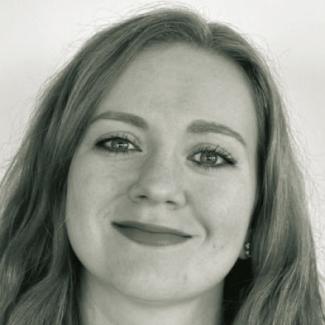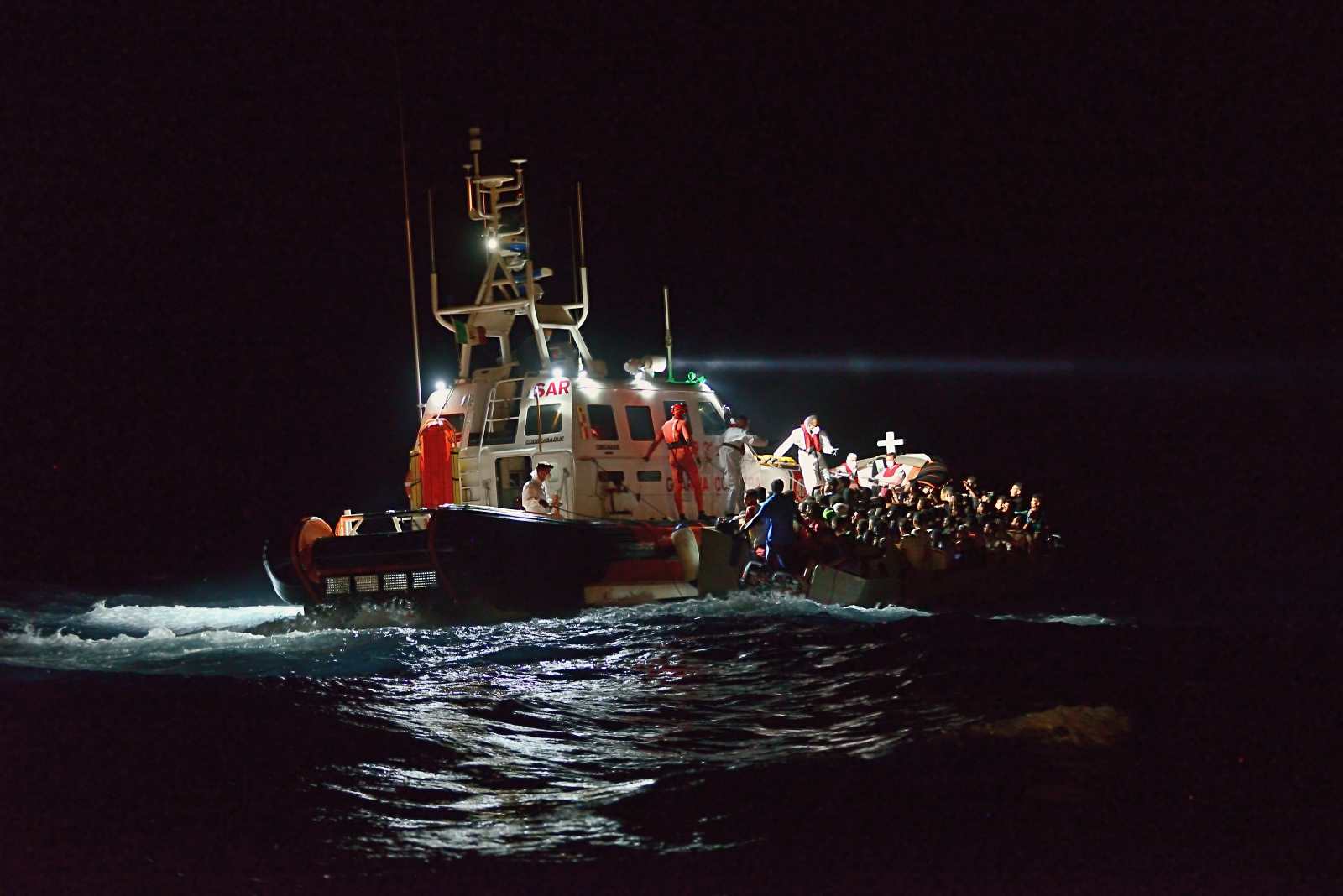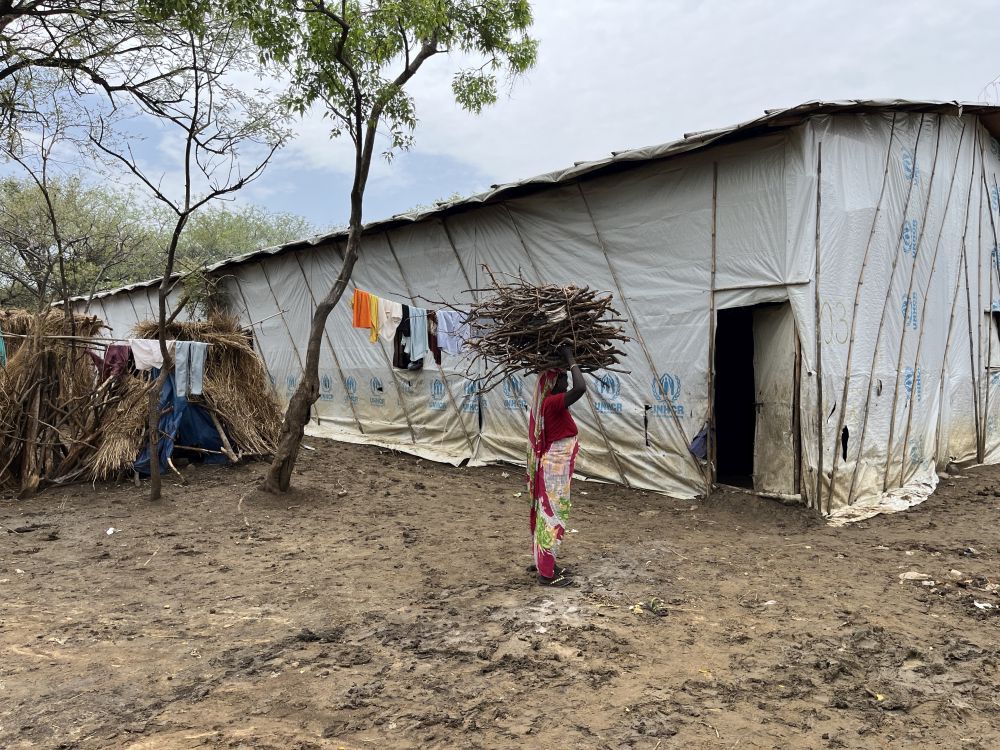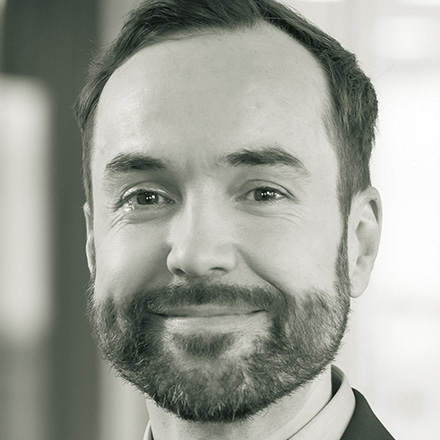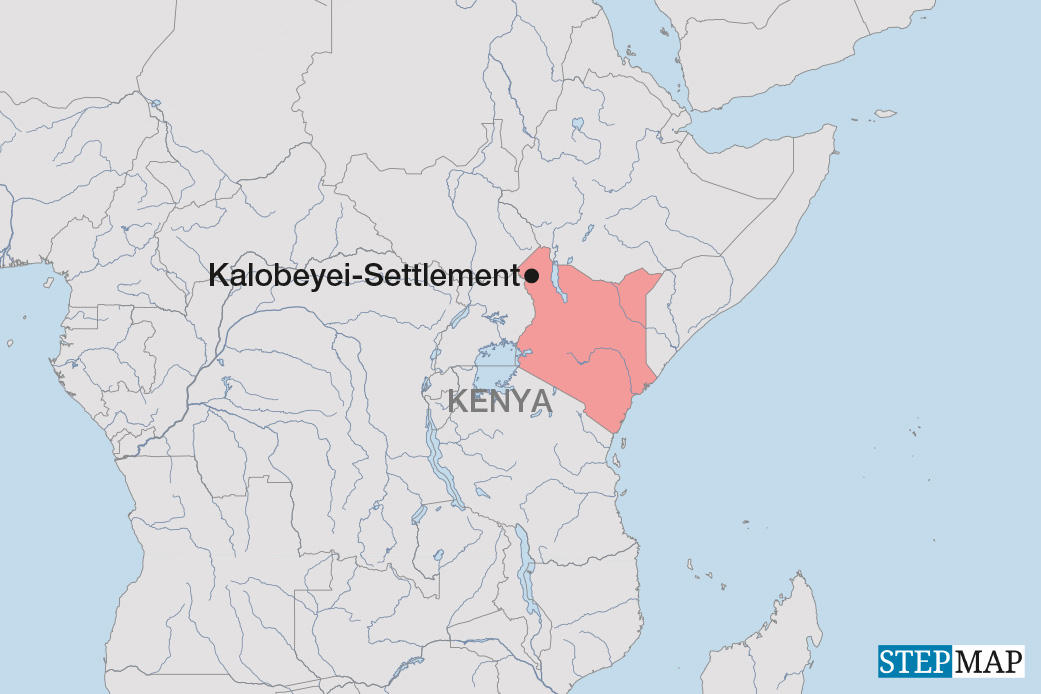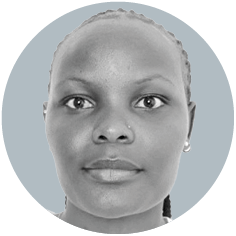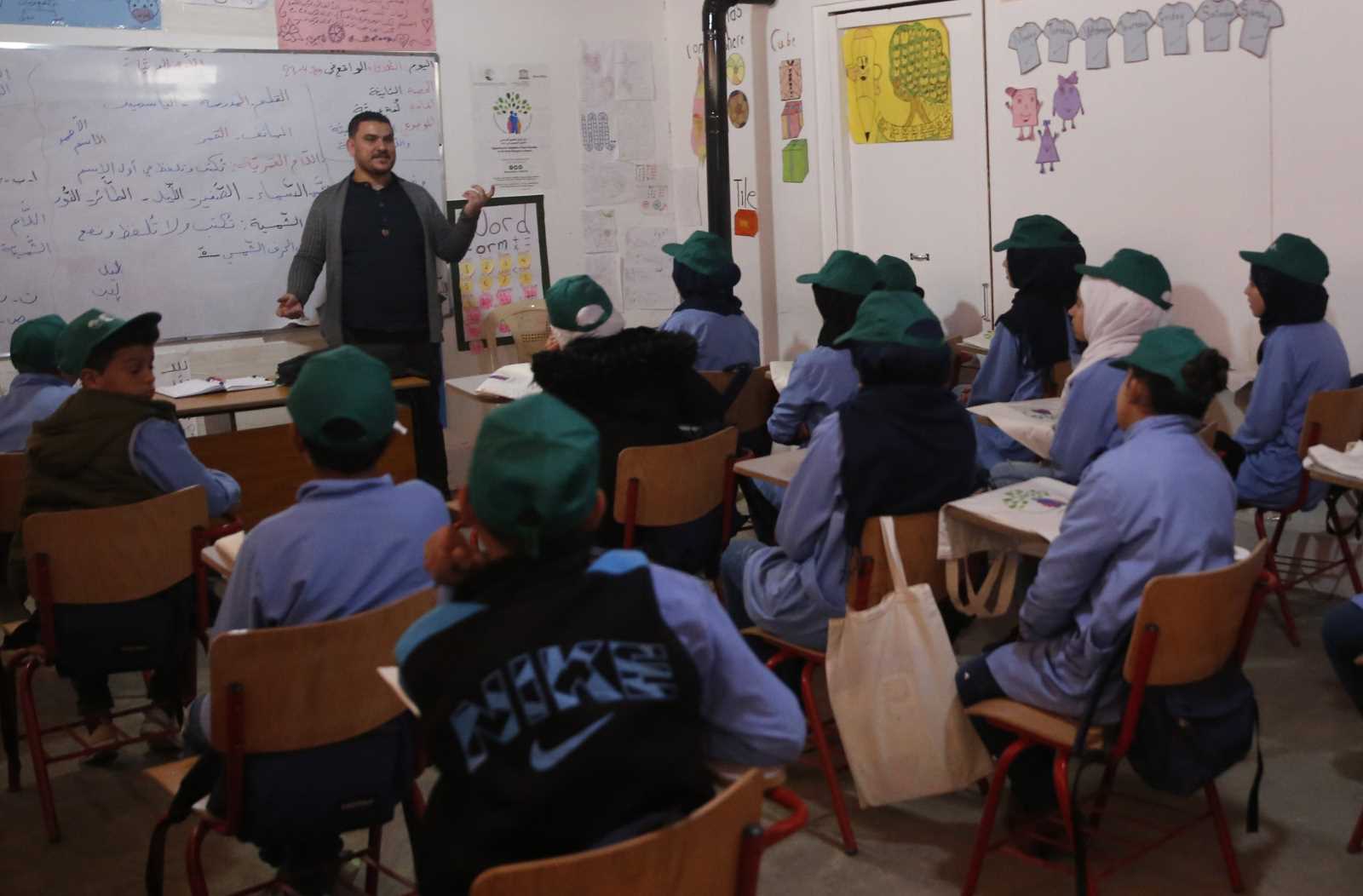Mediterranean migration route
Alleviating the suffering on Lesbos

A blurred mobile-phone video published by the non-governmental organisation Aegean Boat Report shows the kind of events still happening on Europe’s Mediterranean borders: People are sitting in a rubber dinghy at sea, with the Greek coast in sight. A ship flying the Greek flag approaches. Four men in dark uniforms and black balaclavas are standing at the railing. One of them strikes out at the boat with a long boat hook. The occupants scream hysterically. The video stream ends.
According to Aegean Boat Report (ABR), the footage was taken in November 2023 off the north coast of the Greek island of Lesbos. The inflatable had 23 people on board, including children. It came from Turkey, just a few kilometres away, and was already well inside Greek waters when the local coastguard appeared. A textbook pushback ensued: first the boat hook was used to wreck the dinghy’s outboard motor. Then, helplessly adrift, the people were taken back to Turkish waters and abandoned to their fate. The group was rescued after dialling the international emergency number 112.
This was not an isolated incident. Aegean Boat Report documents more than 900 boats illegally stopped by the Greek coastguard in this or similar ways in 2023, and more than 25,800 people taken back to Turkey.
Inhumane conditions
Those who make it to Lesbos are confronted with the inhumane reality of the Mavrovouni refugee camp, the successor to Moria, which burned down in 2020. Around 4000 people live in the camp, in cramped conditions. Guards are on duty day and night, the site is fenced and secured with Nato barbed wire and entrance is strictly controlled. The camp is located directly by the sea and exposed to wind and bad weather. The accommodations have no heating, even though winter temperatures in Greece drop to freezing point. The sanitary facilities are inadequate.
“The camp is dehumanising,” says Italian field worker Silvia Lucibello. “The people are treated like criminals.” She worked for some time inside the camp for a non-governmental organisation (NGO). Now, she is a coordinator at Paréa Lesvos, one of the last remaining community centres on the island. It is located on a hill within walking distance of the camp. Under the direction of the German humanitarian aid organisation Europe Cares, ten NGOs have come together to offer residents a respite from the misery of daily camp life.
Activities, services, counselling
At Paréa, visitors can eat, have their clothes washed, learn English and receive psychological or legal counselling. There is a retreat for women, a small vegetable garden, various sports activities and workshops. The walls of the buildings are painted in bright colours. Music plays in the community centre grounds. There is no place like it anywhere else on the island.
“Paréa is the complete opposite of the camp,” Lucibello says. “In the camp, people feel they are neither seen nor welcome. We want to show them that not everyone dismisses them as criminals. We educate them about their rights and give them a place where they can be themselves, with their interests and talents.”
The crisis is worsening
In the summer, an unprecedented number of refugees arrived on Lesbos and the number of visitors to Paréa also shot up – to as many as 700 a day. “In September, we recorded the highest number of arrivals on the island for a long time, more than 3000 people,” says Lucibello. Over the year as a whole, according to ABR, the number of incoming refugees exceeded 13,000 – eight times more than in 2021.
Lucibello points out that there were many reasons for this. After the end of the Covid-19 pandemic, more opportunities for refugees opened up again. In addition, there were significantly fewer pushbacks because of the international attention that focused on the Greek coastguard after the New York Times published videos of a pushback in May. However, the blurred video that made public in November shows that the practice has been resumed. The number of arrivals is falling accordingly.
The images and figures are reminiscent of 2015 and 2016, when Lesbos came to epitomise the chaos at Europe’s borders. The Moria camp clearly demonstrated the failure of European migration policy. Today, there are fewer refugees living in Mavrovouni than there were in Moria. But the drop in numbers comes at the expense of the human rights that are so solemnly proclaimed in the European Charter of Human Rights. Illegal pushbacks are just one of the tools of Greek and European deterrence policy.
However, there is no public outcry. The island has almost completely slipped off the radar. Media attention has shifted, and Lesbos is now one of the world’s many forgotten crisis hotspots.
Less attention, lower donations
This is a problem for NGOs like Europe Cares (EC) because donation flows often ebb when media attention wanes. If donations dry up, the NGOs reach their limits. “It’s a constant sprint, almost a marathon now,” says Lennard Everwien, Co-Director of EC. “We struggle along from month to month. But we are determined to preserve this special place of community and solidarity.” He does not believe that the asylum system can be humanised overnight, but he sees a possibility to make daily life easier for migrants.
There is a pinboard in Paréa where visitors leave messages on colourful slips of paper. One reads: “You are like stars shining for us all day! When we come here, we really enjoy. Your smiles are so welcoming. One day we will go but take with us the best memories!”
Such appreciation helps strengthen Silvia Lucibello’s commitment. “We cannot undo what people have experienced back in their home countries and on their journeys,” she says, “but we can give them a safe space, even if it’s just a small sticking plaster on a large wound.”
Natascha Kittler works as a communications volunteer for Europe Cares.
natascha.kittler@europecares.org
